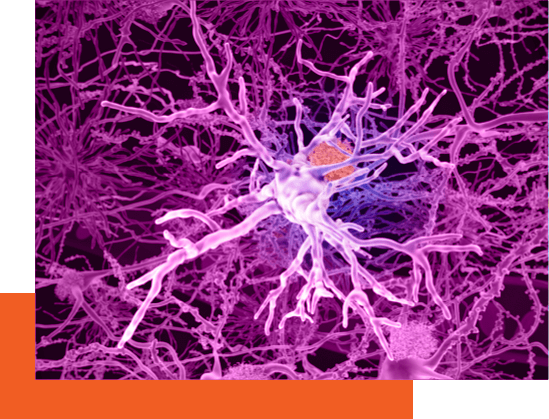Preventing the
Progression
of CNS disorders
by targeting the cellular
damage response
mechanisms
neurons to fight neurodegenerative diseases.
Zervimesine (also CT1812), Cognition Therapeutics’ lead product candidate is a once-daily, oral, small-molecule designed to rescue trafficking deficits, a “housekeeping” function that is impaired in neurodegenerative diseases.
By binding to the receptor responsible for regulating these functions, zervimesine helps to maintain the normal function of neurons in the brain, potentially slowing progression of Alzheimer’s disease and dementia with Lewy bodies.
Areas of Focus
Alzheimer’s disease is characterized by an age-related buildup of toxic proteins in the brain, which bind to receptors and disrupt key cellular processes. Zervimesine, Cognition Therapeutics’ lead product candidate, has been shown to displace toxic protein oligomers that have attached to neurons, potentially restoring normal cellular function.
Watch our mechanism of action video to learn more.

Age-related buildup of toxic proteins is also known to be a cause of dementia with Lewy bodies (DLB), the second most common form of degenerative dementia. Zervimesine is believed to help maintain the function of the sigma-2 receptor and has the potential to protect neurons from the two types of pathogenic proteins known to drive the progression of DLB.
